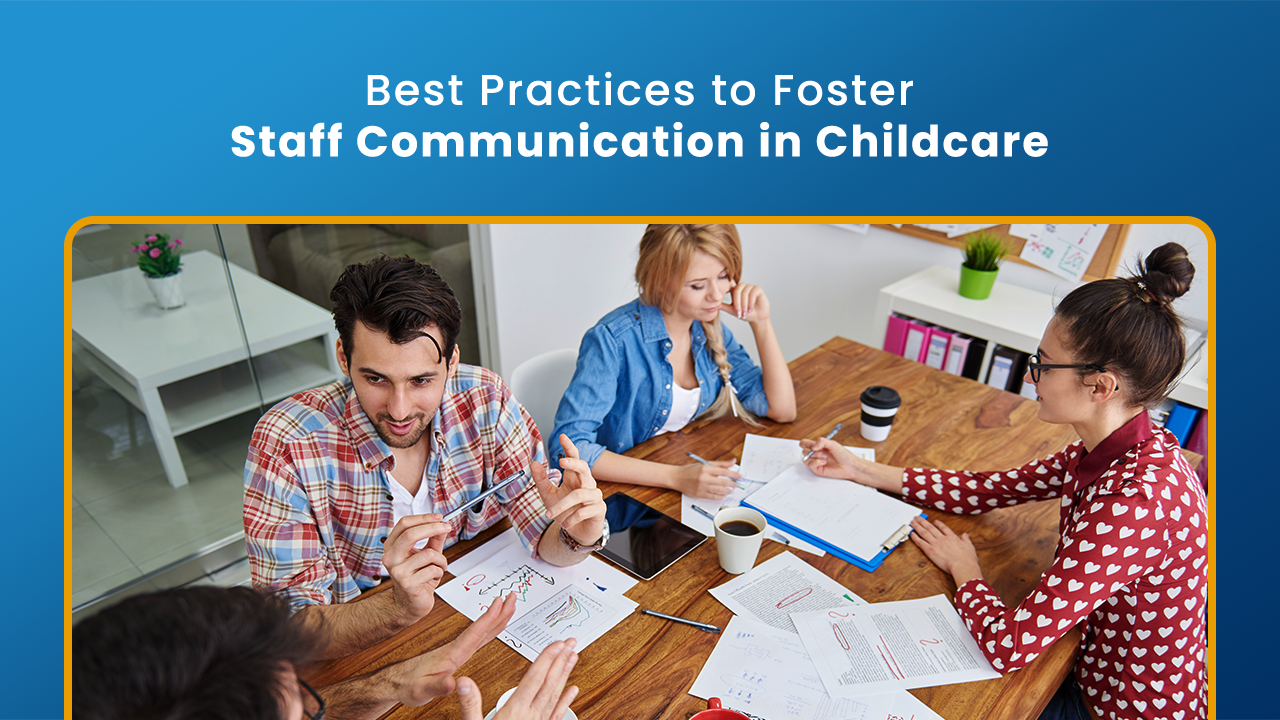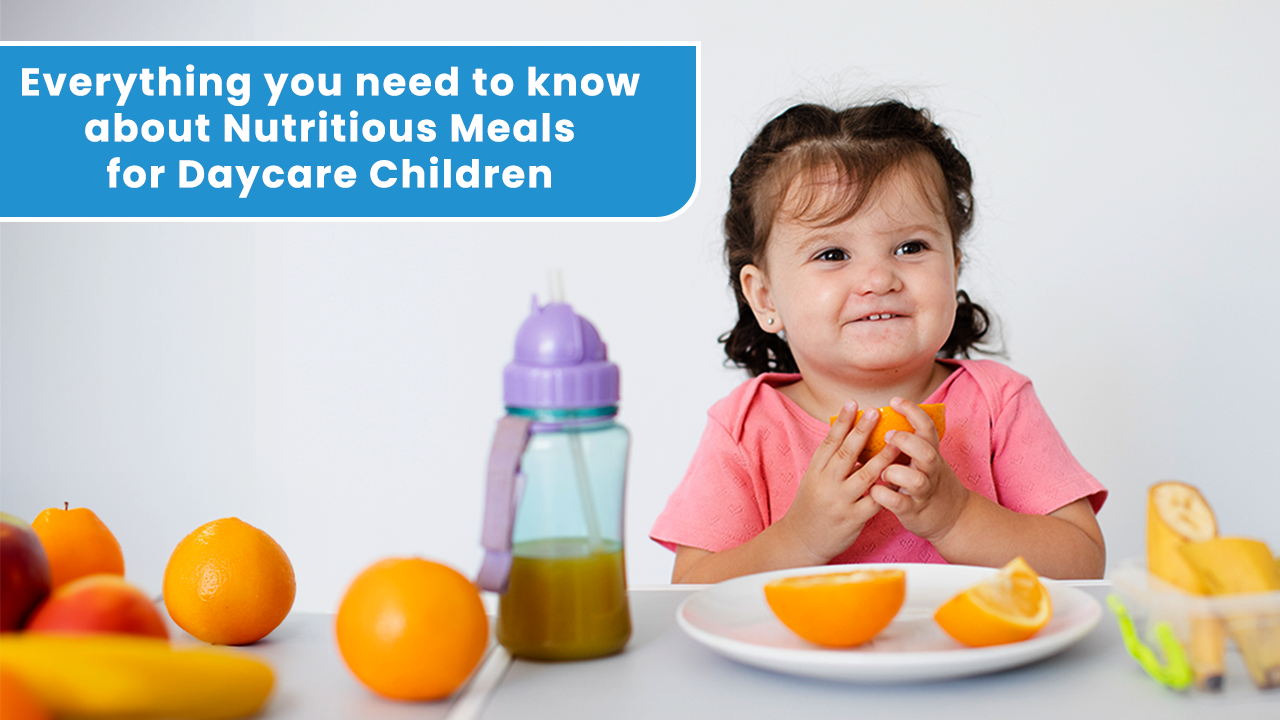
- The Importance of Open Staff Communication in Childcare
- Understanding the Role of Leadership in Promoting Staff Communication in Childcare
- Best Practices and Communication Strategies for Improving Staff Communication in Childcare Business
- Establish Open Lines of Communication
- Set Clear Expectations
- Utilize Multiple Communication Channels
- Implement Regular Staff Training
- Develop a Strong Internal Communication System
- Use Visual Aids
- Foster a Collaborative Environment
- Create a Feedback System
- Review and Update Communication Strategies
- Celebrate Successes and Milestones
- Best Practices and Communication Strategies for Improving Staff Communication in Childcare Business
- About 360Daycare: Smart Daycare Solution Encouraging Effective Communication Among Childcare Staff
Staff communication in childcare centers is very crucial when it comes to running a successful childcare facility. Keeping staff informed and involved improves the center’s daily operations and enhances the overall experience for children and parents. However, ensuring effective communication among staff members can be a challenge. In this blog, we will explore some best practices to foster staff communication in childcare centers, so you can create an environment where everyone is on the same page and working towards the same goal. From regular meetings to simple strategies such as active listening and providing feedback, we will cover everything you need to know to enhance your team’s communication skills in childcare.
The Importance of Open Staff Communication in Childcare
Open staff communication in childcare is essential for creating a positive, efficient, and nurturing environment for children, staff members, and families. Effective staff communication in childcare promotes collaboration, fosters a supportive work culture, and ensures the best possible care for the children.
The importance of open staff communication in childcare can be understood through the following aspects:

Enhancing Child Development
Open staff communication in childcare allows for sharing knowledge, experiences, and best practices, leading to better support for the children’s development, learning, and overall well-being.
Consistency in Care
When staff members communicate effectively, they can establish consistent expectations, routines, and guidelines for the children. This helps create a stable environment where children feel safe and secure, allowing them to thrive.
Conflict Resolution
Open staff communication in childcare enables staff members to address conflicts or misunderstandings promptly and constructively. This helps maintain a harmonious and productive work environment, contributing to a positive atmosphere in the childcare center.
Collaborative Problem-Solving
By fostering open communication, staff members can work together to identify and resolve issues, develop innovative solutions, and improve the overall quality of care provided.
Staff Retention and Morale
A supportive and communicative work culture can increase job satisfaction, leading to higher staff retention and lower turnover. This stability benefits both the children and the childcare center as a whole.
Parental Trust and Confidence
Parents are more likely to trust and feel confident in a childcare center where staff members communicate openly and work together effectively. This trust is crucial for building strong relationships between the childcare center, parents, and children.
Compliance with Regulations
Effective staff communication in childcare ensures all staff members know and adhere to the relevant regulations, policies, and procedures. This compliance is crucial for maintaining a safe, secure, high-quality childcare environment.
Professional Development
Open staff communication in childcare fosters a culture of continuous learning and professional growth. Staff members can share ideas, provide constructive feedback, and support each other’s development, leading to a more knowledgeable and skilled team.
Crisis Management
In case of emergencies or unexpected situations, open communication among staff members is critical for making quick, informed decisions and taking appropriate actions to ensure the safety and well-being of the children.
Community Building
Open staff communication in childcare contributes to a sense of unity and teamwork, fostering a strong and inclusive community within the childcare center. This sense of community is essential for creating a nurturing and supportive environment for children, staff, and families.
Understanding the Role of Leadership in Promoting Staff Communication in Childcare
Effective communication is critical to successful childcare centers, and leadership plays a crucial role in promoting it. The leader in a childcare center must develop, support, encourage and motivate their staff, modeling a high standard of practice, knowledge, and intentionality. Leaders create an environment where open communication can flourish by identifying and articulating a collective vision, providing shared understandings, and gathering feedback. They must also emphasize the importance of actively listening and communicating respectfully and train staff in practical communication skills. Finally, they should recognize and celebrate effective communication within the staff team, providing opportunities for team-building activities. A leader who understands their role in promoting communication will create a collaborative and supportive community between childcare workers, parents, and children in their center.
Best Practices and Communication Strategies for Improving Staff Communication in Childcare Business
Establish Open Lines of Communication
Create an open and welcoming environment where staff, parents, and children feel comfortable sharing their thoughts, concerns, and ideas. This can include efficient team communication in childcare using regular check-ins, meetings, or an open-door policy.
Set Clear Expectations
From the onset, communicate expectations, rules, and policies to parents, children, and staff. This clarity can help prevent misunderstandings and foster a harmonious atmosphere within the childcare center.
Utilize Multiple Communication Channels
Implement various communication methods such as emails, newsletters, phone calls, and social media updates to ensure everyone is well-informed and can choose the most convenient way for them.
Implement Regular Staff Training
Building communication skills in childcare staff is really important. Daycare employee training benefits are paramount, that’s why it’s crucial to train your staff on effective communication techniques and strategies, including active listening, empathy, and body language. Also, provide guidance on dealing with difficult conversations and conflict resolution.
Develop a Strong Internal Communication System
Implement a reliable internal communication system to ensure staff members are well-informed about policies, procedures, and updates. This can include staff meetings, memos, or an internal messaging platform.
Use Visual Aids
Display visual aids such as schedules, calendars, and notice boards to clearly communicate information to parents and children. This helps reinforce verbal messages and ensures everyone is on the same page.
Foster a Collaborative Environment
Encourage teamwork and collaboration among staff members, parents, and children through group activities and projects. This can build a sense of community and enhance communication skills.
Create a Feedback System
Establish a process for collecting and addressing staff, parents, and children’s feedback. This can include suggestion boxes, surveys, or informal conversations. Make sure to address concerns and implement changes as needed.
Review and Update Communication Strategies
Regularly assess the effectiveness of your communication strategies and make necessary adjustments. Solicit input from staff, parents, and children to identify areas for improvement and develop new methods to strengthen communication within your childcare center.
Celebrate Successes and Milestones
Recognize and share achievements, milestones, and positive experiences within the childcare community. This can create a positive atmosphere, encourage open staff communication, and strengthen relationships among staff, parents, and children.
About 360Daycare: Smart Daycare Solution Encouraging Effective Communication Among Childcare Staff
360Daycare, a comprehensive daycare management software, streamlines staff communication and collaboration by providing an all-in-one platform that brings together various communication channels and tools. It offers a wide array of communication tools for childcare providers and centralizes information hubs allowing staff members to quickly access and share relevant data, ensuring efficient and accurate communication. The solution promotes real-time interaction, fostering teamwork and efficient problem-solving among the staff. Moreover, task management, staff scheduling, and activities management allow team members to coordinate their efforts, stay updated on their responsibilities, and collaborate effectively. By integrating with popular communication tools and offering customizable notifications, 360Daycare keeps everyone in sync, resulting in a more cohesive and well-organized childcare center that benefits staff, children, and their families


